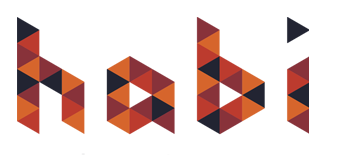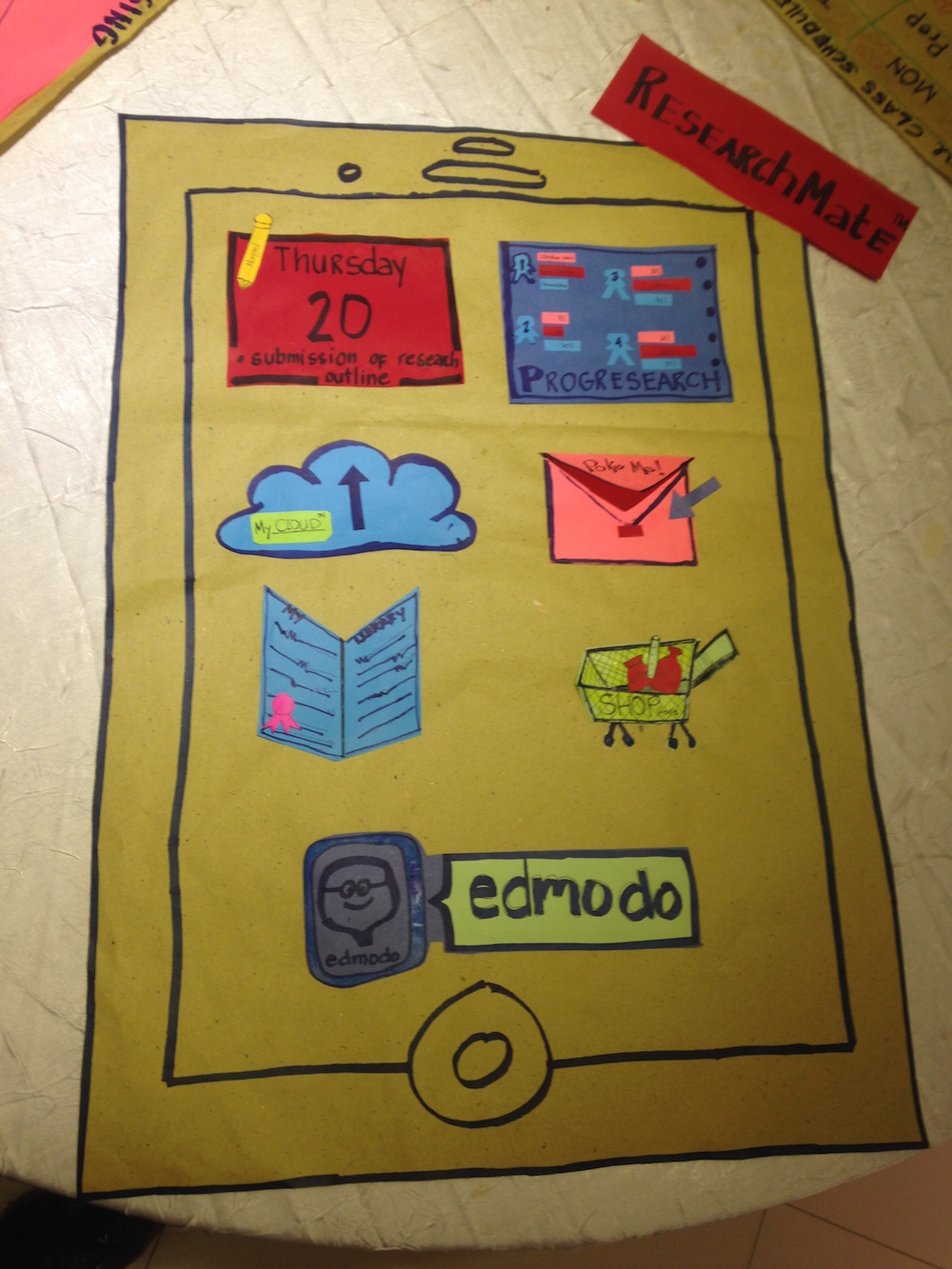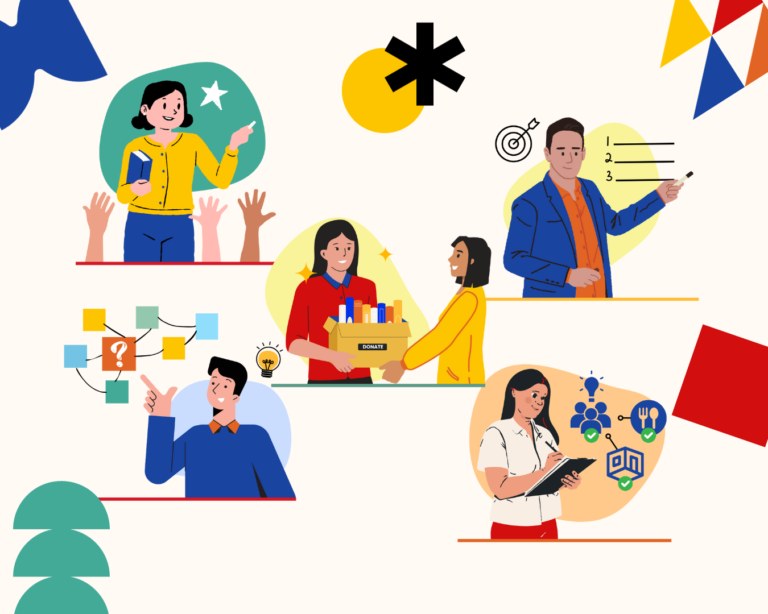Habi was in Davao City recently to conduct a Design Thinking for School Innovation Workshop for 82 teachers from four campuses of the Philippine Science High School System: Davao, Koronadal, Legazpi, and Clark. We focused on the problem of professional development of teachers and staff: how do we improve learning while on the job?

Fishbowl discussions as a tool for user research and empathy-building
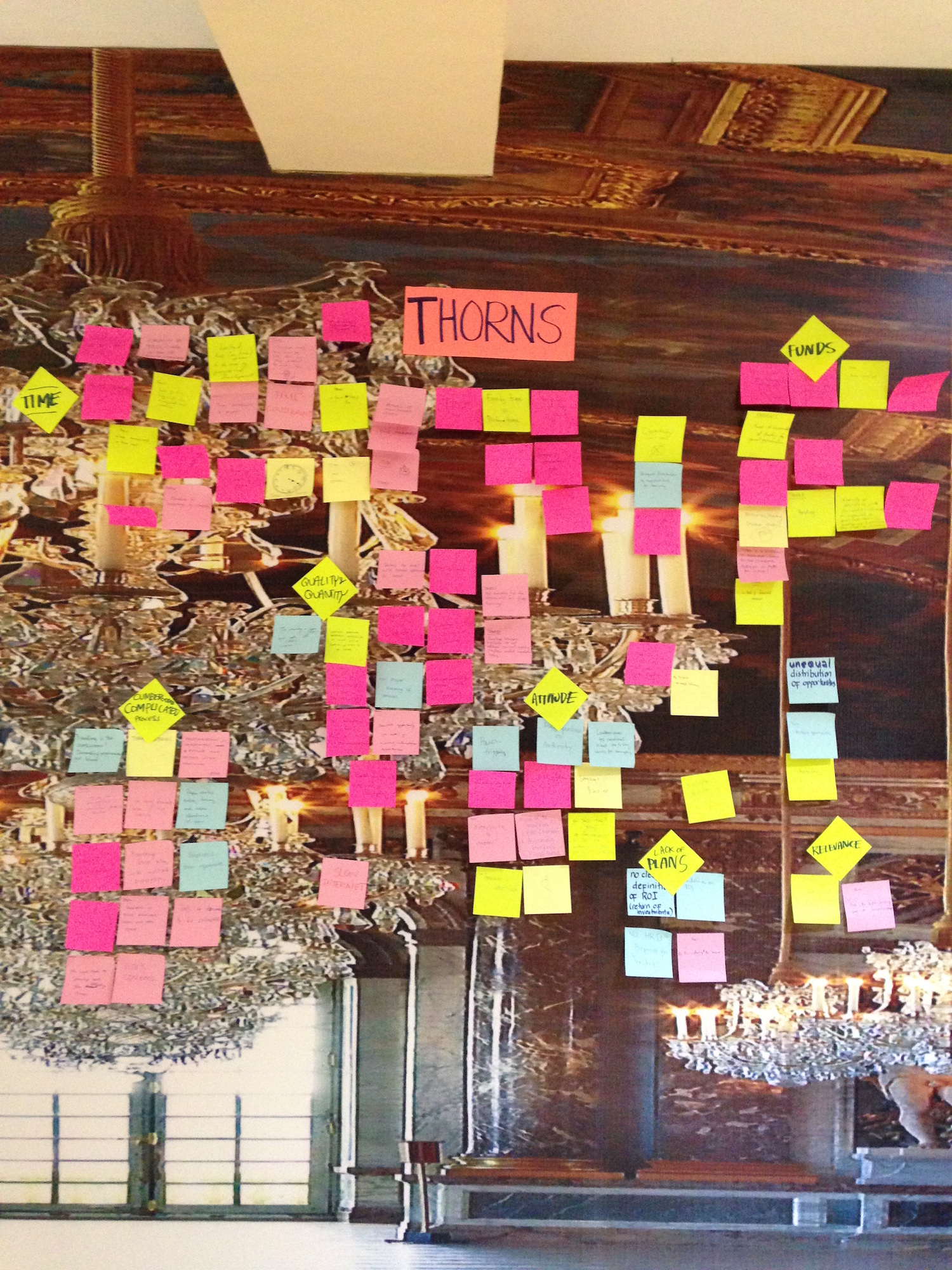
Thorns are problems within a group’s school/organization. 2-day workshops use thorns as springboards for design projects
Using games and activities, we guided the teams from problem definition to feedback sessions on their initial prototypes. Here are some interesting projects that were designed by our participants:
Strengths + Weaknesses Assessment for Administrative Staff
A group of teachers wanted to help their non-teaching colleagues develop professionally by designing a simple process of gathering the necessary skills and knowledge needed to perform better work. This came from the idea that the non-teaching staff change departments often (clerks in the registrar’s office might find themselves in the budget department 3 years from now), making their professional development plans more indefinite, unlike the teachers’ straightforward paths (post-graduate degrees in their disciplines, teaching seminars and workshops).
Through the use of Google Forms and Sheets, they developed a simple database that maps out a personnel’s skills based on a survey accomplished by the staff themselves, their peers, and their supervisors. It seems pretty simple, but somehow this is not a common practice. This process allows staff to easily examine their own strengths and weaknesses. It also gives their supervisors data on which professional development opportunities would be relevant to each staff member.
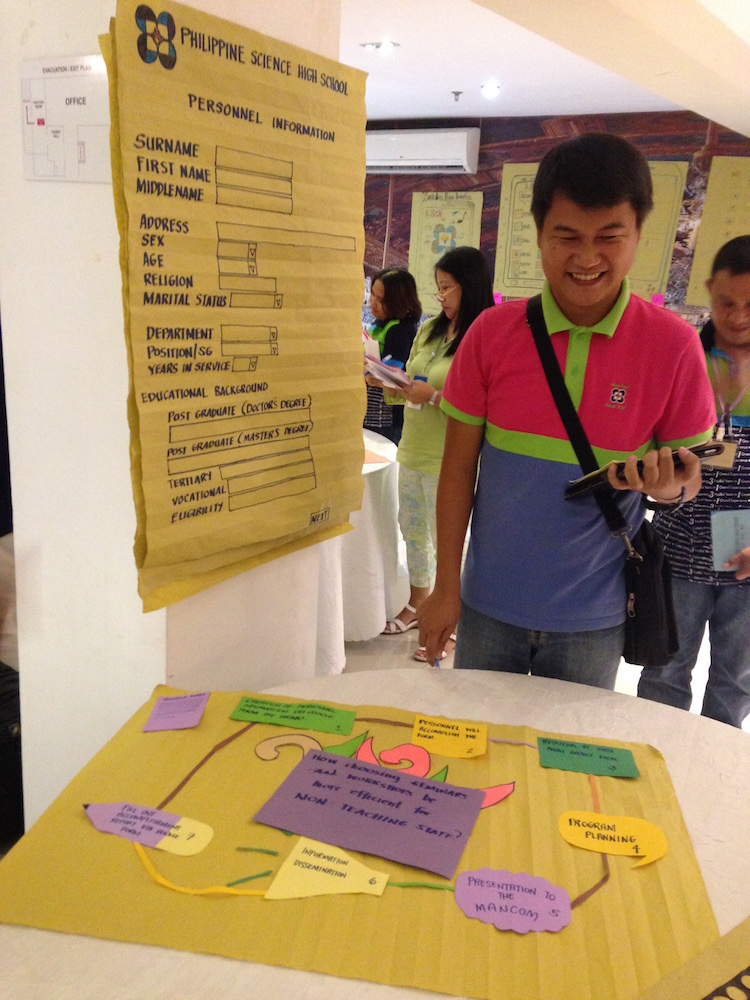
How might we make choosing seminars and workshops more efficient for non-teaching staff?
Travel Lite: Your Travel Docs Generator
A major pain point in attending to seminars and workshops is fixing the travel documents. Especially when there are air travel and hotel accommodations involved, the processes of preparing for the trip takes longer than the trip itself. Based on interviews and personal experiences, it was noted that most teachers learned how to do these documents from older teachers. They tend to copy previous document formats because of its repetitive nature. There are patterns to these documents, from estimating daily food allowances to taxi fares and terminal fees.
The team therefore decided to develop a website that generates the documents, complete with budget estimates and flight booking. A teacher will simply indicate the location, number of teachers/students in the travelling group, dates and times. Instantly, the web service will produce the budget forms, itinerary of travel, reimbursement receipts, request for travel authority, and even recommended flight bookings. The participants who saw this project loved it immediately, asking for the team to propose it to their leaders and have it developed.

How might we make attending seminars and workshops easier for teachers?
Young Once, Young Ones
It’s a common assumption that the older the teacher, the harder it is to teach them newer techniques and tools in teaching. A team composed of experienced and novice teachers wanted to challenge that, and developed a solution by using an under-utilised resource: informal and peer learning between teachers. They designed a three-day workshop entitled “Young Once, Young Ones” which is part of a larger program that encourages mentorship between teachers young and old. The curriculum of the workshop highlights the strengths of both novice teachers (who were more familiar with technology-based teaching techniques) and experienced teachers (who had years of pedagogical content knowledge expertise in their fields). Most workshops are perceived to be one-sided: “Those older teachers who are more resistant to change don’t feel empowered, the typical workshops make them feel useless and outdated, which makes it more difficult for them to adopt new techniques” shares one of the team members.
This buddy-system/partnership model aims to change that, with the hope of encouraging more collaboration and sharing of best practices across age groups. Unlearning requires humility, an acceptance of the fact that what you know may not be the best way to go about things. This type of workshop makes everyone—the Young Once and the Young Ones–feel both vulnerable and competent.
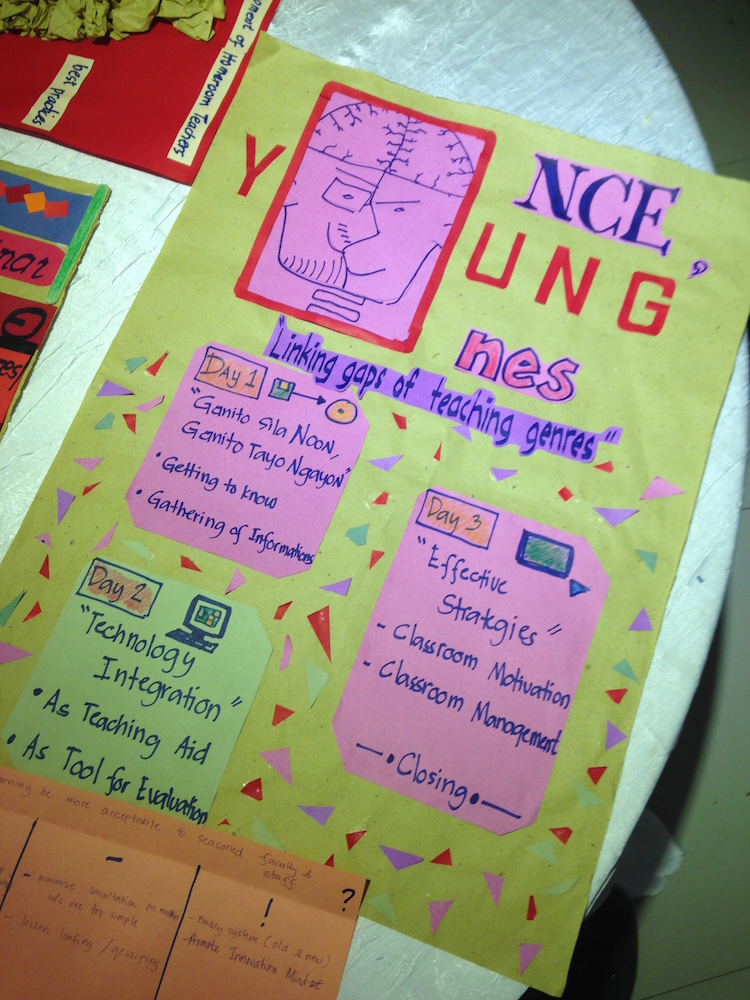
How might we make unlearning more fun for both older and younger teachers?
Unlearning Sticks
Coming from the key insight that unlearning is a very personal process, a team of teachers created an easy-to-make product that is part-game and part-self-help book. Unlearning Sticks are popsicle sticks with tasks written on them– tasks that encourage teachers to be brave and step out of their comfort zones. The tasks vary from being generic and abstract (“learn to trust others”, “loosen your dominance”) to actionable and straightforward (“be immersed in a new society”, “share your reference material to others”, “observe one class”). The idea is that teachers will get one stick randomly, and will attempt to finish this task according to their terms. The developers are pushing for an honor system, since they believe in intrinsic motivation as the more effective than providing extrinsic rewards: “prior efforts involved performance points that led to raises and monetary rewards, or required activities that needed certifications… were all ineffective, teachers end up simply doing it to comply, not to change.”
A few suggestions that they are thinking of incorporating into their next prototype are (1) ways to self-assess your own achievement of a task, (2) methods to make the experience more social such as passing on a task to another teacher, and (3) ways to study the efficacy of this tool by gathering feedback from initial users.

How might we make unlearning easier for seasoned teachers?
Other interesting projects:
The workshop produced an abundance of well-thought out projects as a result of a two-day workshop! When asked How long should a design thinking workshop take? The safe answer is: it depends. But based on experience, two days are perfect for an introductory experience into the mindsets of design thinking. Two-day workshops allow teachers to use the HABI process in solving real problems in their schools, producing ideas and prototypes at the end of the workshop. It makes the learning experience meaningful and productive, giving participants a feeling of achievement. It’s also well spaced, providing enough time for processing and meta discussions.
